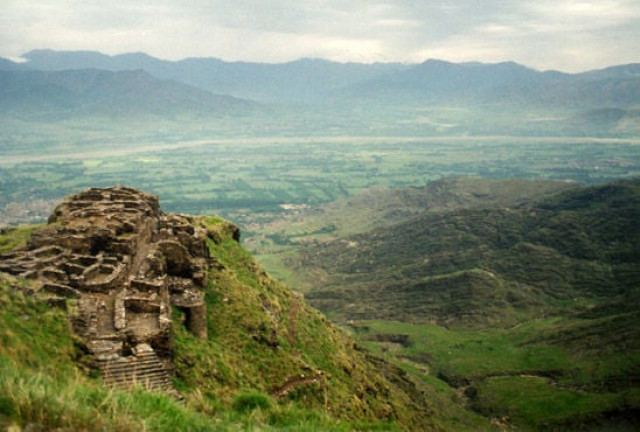I asked a few desis at heart, who are no longer living in Pakistan:
How do you feel when you hear news concerning Pakistan?
Tania Briceno
Nationality: Columbian
Karachi, Pakistan: 1991-1994
“It is always hard to read about disasters and deaths in Pakistan. I guess the fact that you once lived there makes it feel a little bit more like a real tragedy than just a number of deaths in a news article.”
Amalia Judith Nickel
Karachi, Pakistan: 1988-1994
Nationality: Canadian
“For me, Pakistan feels very far away, almost like a dream. It's when I see images on the news, or hear old friends speak about what's going on there, that it hits me hard. Like the waters of the Indus, the memories flood into my head and I connect with a part of me that was almost gone. It's unfortunate that it's on such sad terms, that it's only with tears that I remember my childhood home, but it's also comforting to feel the way I felt as a little girl in that troubled land.”
Philip Lotze
Karachi, Pakistan: 1993-1999
Nationality: American
“Events like those that have mentioned in the news are unfortunate and not-so-subtle reminders of the fact that when all else is stripped away. We're all essentially the same; we're people designed to rely on one another, to cooperate in progress. The Indus disaster is a tragic example of good people who have had everything stripped away. Good people will respond."
Steve Owen
Nationality: American
Karachi, Pakistan: 1994-1999
“Ever since I lived in Karachi from 1994 to 1999, I've seen something very frequently both in person and reflected in news reports, seemingly regardless of which media outlet happens to be talking about anything Pakistani. What I've seen is the broad-based generosity of spirit and sincerity of 99 per cent of Pakistanis (and it doesn't seem to matter much which socio-economic stratum they come from.- since when I lived there I met people from the most modest of backgrounds all the way up to the hyper-elite.
This was particularly evident in the neglect of infrastructure and the lack of services experienced by "neighborhood folks" who couldn't possibly afford to protect themselves from the sorts of things that are constantly focused upon when Pakistan is in the news, e.g. political and religious militancy, economic dislocation, and now, since the rainstorms in Northwest, natural disasters. These "neighborhood folks" are the vast majority of Pakistanis and are paradoxically both the foundation of power and influence for anyone in the country who has ambitions for leadership, as well as the people who can count on their voices, problems, and catastrophes being ignored most of the time.
Sometimes, if the cameras are numerous enough, the military is sent in to assist people in their time of greatest need, but the investment and maintenance that is necessary to cope with, say, terrible floods or earthquake-destroyed homes, will rarely if ever be made and those resources will almost never be aimed at those most truly at risk. Another thing that always gets into the news is if an angry mob forms somewhere in Pakistan. It might be a few thousand, in a country of 150 million, but the mob will get the spotlight.
Actually, considering how little their leaders really do for them, it's lucky that so many Pakistanis uphold faith and patience as virtues. If not, those leaders might see a lot more expression of anger, directed at them and that is when the international cameras would really roll. But would the necessary investments for a better society be made by those who have the power to make them? I am skeptical that they would be. They do not have the best track record, as the millions dislocated by the failure of drainage systems are now experiencing.I do hope that something can be done for all those whose homes and loved ones have been washed away. My family and I wish all our Pakistani friends safety and happiness as quickly as possible.”
It is unfortunate that Pakistan gets sketched as a country constantly in dire straits but what is truly lamentable is that we fight amongst one another, on a personal level. We can keep blaming the lack of education, the close mindedness or even the national and international media for our problems. That being said, it may be difficult to differentiate between who tarries by, friend or foe?



COMMENTS
Comments are moderated and generally will be posted if they are on-topic and not abusive.
For more information, please see our Comments FAQ